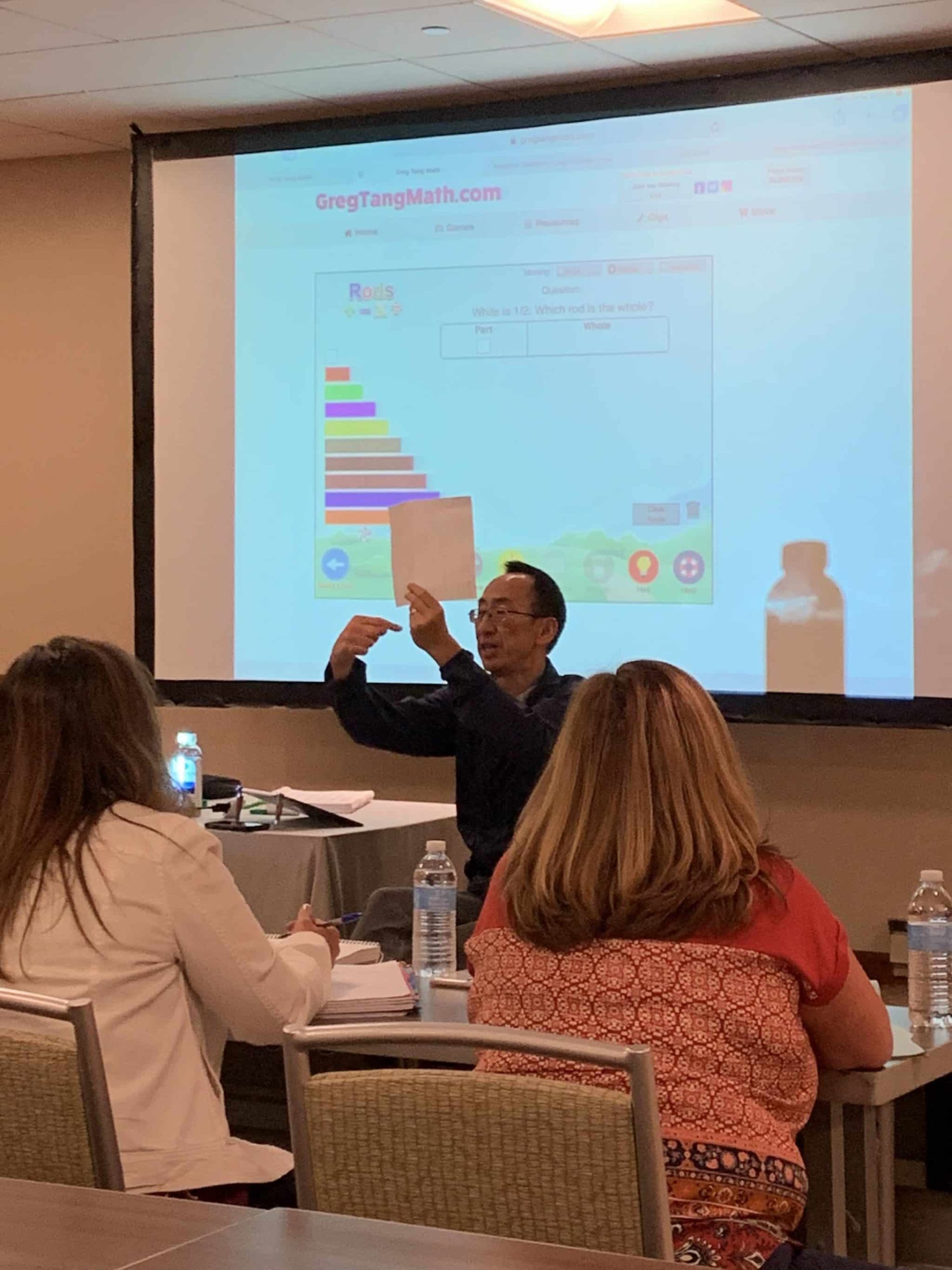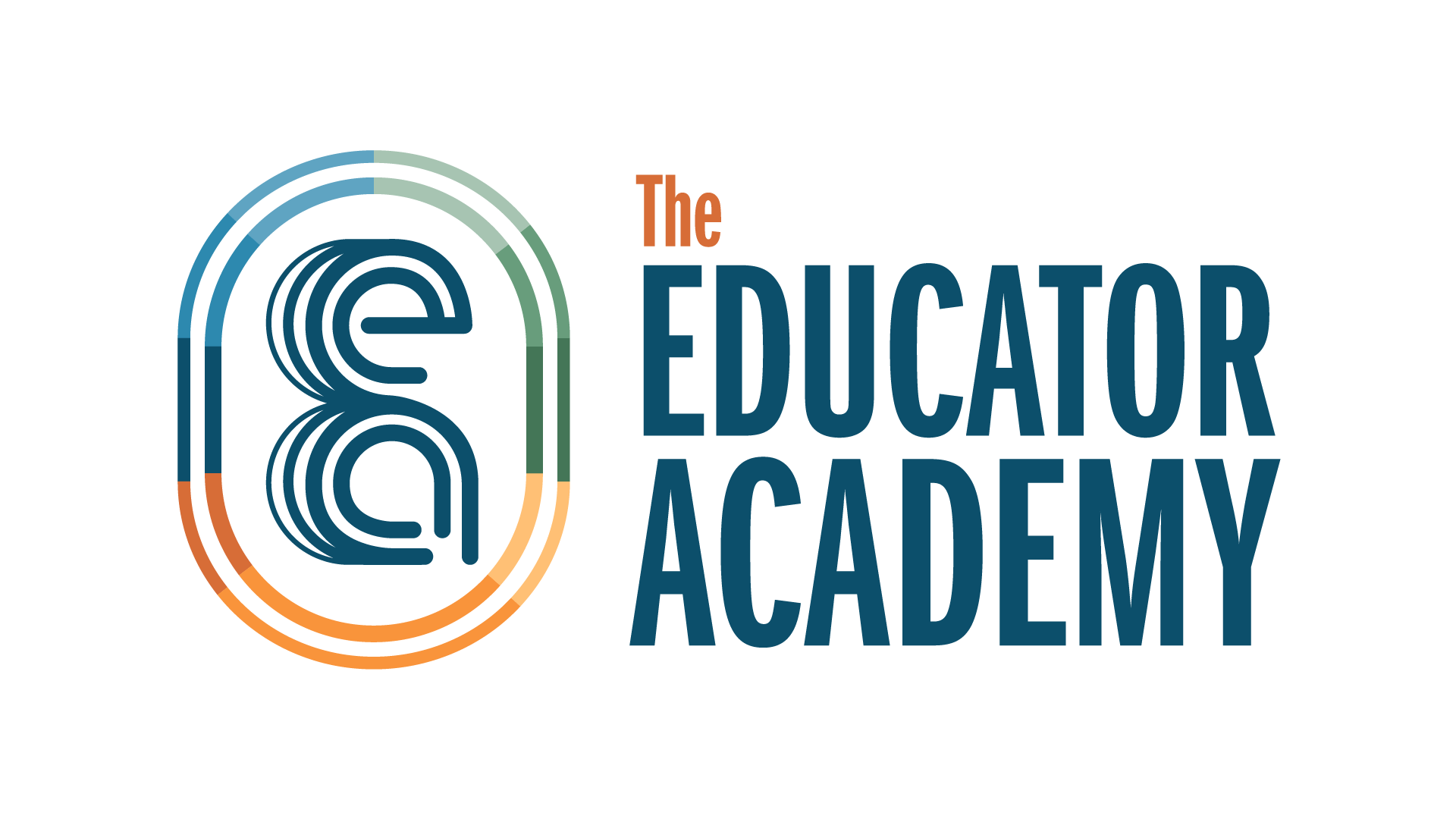
My Experience at Math PLUS

Written By: Grant Williams, The Educator Academy Cohort Three Resident Graduate
After some relaxation and a much-needed vacation following my residency year with the The Educator Academy, I returned home ready to prepare for my first year as a teacher of record. From July 9th to 11th, I attended the 2019 Greg Tang Math PLUS conference in downtown Kansas City. I was fortunate to attend this conference alongside seven amazing and dedicated colleagues of mine from Wheatley Elementary in the Kansas City Public Schools. I want to take this opportunity to share a few key takeaways about what I learned from my first experience at an education conference!
Manipulatives are your friend
Keynote speaker Chris Shore stated, “If we never had an experience with an apple, we wouldn’t know what a picture of it was, or what the word ‘apple’ represents.” The big take-away: Numbers are no different! Numbers are just symbols that represent a quantity. In the absence of experiencing physical quantities, students will not know what the numbers mean. It is vitally important that we get our hands on high-quality math manipulatives. Greg Tang is a proponent of unifix cubes because they can be used to decompose numbers easily, a crucial early math skill. In short, students must be able to physically experience what a number looks like before they can be expected to interpret its symbol (the number). Notice I said students should experience. Put the math tools in their hands!
Looking for evidence of understanding in student work, not scores
After an informative session with John SanGiovanni, I learned a lot about the way we interpret student work. Too often we look for evidence of learning in an arbitrary score. We see that a student scored 87% on a math test – but do they understand what they did? How do we know? Can they explain their work? Sometimes we put students in groups based on exit ticket scores, but can we find evidence of the same misconceptions across the board? Probably! The point: examine student work for evidence of understanding, not just for a score. Sometimes this means just having a visual observation of what the student is doing! As Dr. David Costello, author of Using What Works, stated during his presentation, “What is taught is not necessarily what is learned.”

All you have to do is ask
I am a major proponent of asking questions. There is no such thing as a bad question! I was only able to attend Math PLUS because I asked if I could go. Early in the spring semester, an email went out to the entire building asking who was interested in going to Greg Tang. I ignored it because I assumed it wasn’t for me. Later, while talking with my principal I asked if I was allowed to go. Her answer was, “Yes, Grant!” Had I followed through with my assumption, I would not be sitting here writing this blog post today, nor would I have met Greg Tang (does this officially make me a math nerd now?). Most importantly, I would not have had the opportunity to learn excellent strategies to take back to the classroom to help close the achievement gap experienced by Kansas City students.

